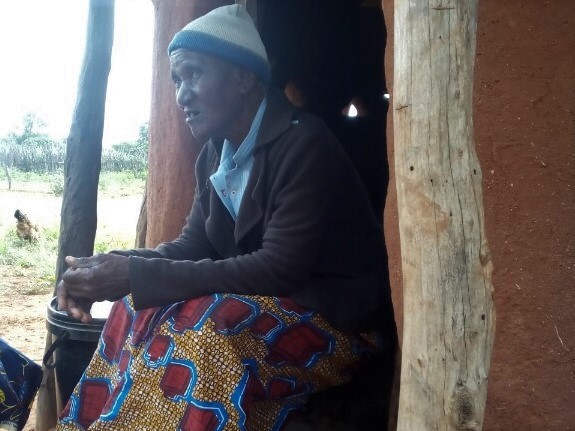My experience engaging with community reporters of the ECID project in Nigeria
Joseph Damian
Nigeria
Joseph works for the Our True Voice project as a community engagement officer to support reporters in Nigeria. He also writes articles drawing on the issues reporters share.
The need for engagement with project communities in Nigeria under the ECID project was what brought me to post as Community Engagement Officer working with On Our Radar (OOR). Communities especially remote areas in Nigeria are faced with difficulty accessing social and technological services such as health care, infrastructure, agriculture, gender inclusion and justice, livelihood support, access to the internet, and information. Access to these services is the priority area that the ECID projects tend to harvest data for informed decision and advocacy.
Evidence and Collaboration for Inclusive Development (ECID), is a data-driven project that contributes to reducing poverty and improving the wellbeing of over 200,000 marginalised people including adolescents (boys and girls), people with disability, and poor rural women in Nigeria. The project aimed to support civil society, marginalised groups, and the government to collect and use data as evidence for effective engagement and participation in decision-making.
Remembering when I took this role with very limited information especially within the team in Nigeria. I kept struggling to get information that will support my effective engagement with the community reporters through reporting and mentoring. The communities across the states that the ECID project identified to work and the clustering of the reporters is quite vast with distinct characteristics, especially with demography. These community reporters were trained as citizen journalists to use their mobile devices to capture and report on issues within their communities.
On assuming this role, I discovered that the reporters that were trained by OOR prior to my resumption have gone cold and reports don’t come from the community reporters to the Radius dashboard. Due to this development, I quickly planned to meet with the reporters to enable them to understand what is expected of them by conducting refresher meetings. My onboarding by OOR was to lead on engagement with the community reporters through the Radius platform and mentoring of the reporters daily and weekly as the case may be.
However, it was an exciting moment for me to be working with about 100 community reporters across 4 local government areas (LGAs) – Jaba, Makarfi, Awka North, and Ayamelum in – Kaduna and Anambra states of Nigeria respectively. These LGAs comprise of the Hausa/Jaba speaking from Kaduna and the Igbo speaking from Anambra. The more interesting part of my work as a community engagement officer is that I worked at Christian Aid Nigeria for more than 6 years supporting flagship projects. I have done series of community engagement projects; however, this task requires some level of technicality and I am working with volunteers with low level of education. These volunteers were trained by CA partners in Nigeria with support from On Our Radar (OOR) on the basic of journalism and reporting.
Engagement
Coming from a full-time project management background, working with the community reporters was initially a challenging task considering I wasn’t part of their training at the initial stage. I had not met with the reporters to have a feel of their level of understanding, what makes them excited to do the work, quality and content of the reports, not reporting and other factors became a mix up at the beginning. As advised by my supervisor, I started following up, motivating, mentoring, and encouraging the reporters to be sending community reports including responding to weekly sprints. The engagement is highly virtual and the need to ensure reports sent through the Radius from the community is able to communicate the desired message in terms of who, what, where, why, and when of the report. A few weeks later the reporters continued engaging actively through the Radius platform.
Challenges
In every endeavour there must be a challenge. Identified as challenges are the quality, frequency, and content of reports; there are external factors that made the moment of my time on the project challenging. These factors can be attributed to the situation of the security within the localities where the project are sited. While the states share different characteristics in terms of demography and culture, there exists a common challenge which is insecurity in both locations. This has hindered both OOR and partner staff from accessing some communities due to kidnapping, banditry, and killings.
Access roads leading to the communities from the state capital of Kaduna is a place that witnesses routine disappearance of people. In Anambra state, the situation is not different. During the review meeting with the reporters, was when the peak of the insecurity was witnessed. This resulted in a low turnout of identified community volunteers to attend refresher/review meetings. This challenge was witnessed across Anambra state leading to the shutdown of Police stations in the major towns of Anambra state. The situation further deteriorated to a point that the reporters and other community members could not go about their normal activities including community reporting due to the intimidating presence of security forces and oppression of citizens.


